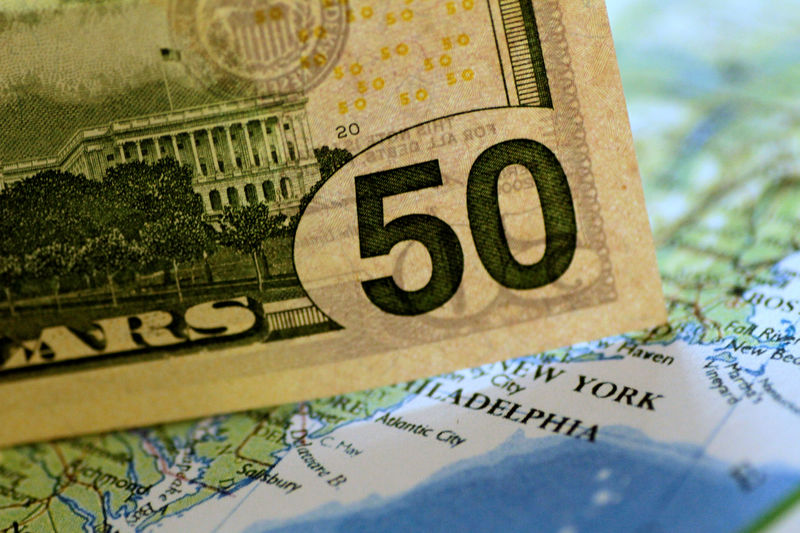By Saikat Chatterjee
LONDON (Reuters) - The dollar extended gains on Tuesday as concerns about a possible escalation in trade conflict between the United States and China prompted investors to dump emerging market currencies.
Against a basket of currencies (DXY), the dollar rose half a percent and was set for its biggest daily rise since Aug. 23 to 95.55. It hit its highest level in more than a year at 96.98 in mid-August.
The public comment period on a U.S. proposal for new tariffs on Chinese goods is set to end on Thursday, after which U.S. President Donald Trump can follow through on plans to impose tariffs on $200 billion more of Chinese imports, though it is unclear how quickly that will happen.
"The dollar seems to be the main defensive currency of choice as trade war concerns have picked up this week and that is causing problems for emerging markets," said Richard Falkenhall, a senior currency strategist at SEB in Stockholm.
Emerging market currencies came in for special punishment as investors feared these export-oriented economies would be caught in the middle of any escalating trade conflict.
A JPMorgan (NYSE:JPM) emerging market currency index (MIEM00000CUS) edged toward a more than one-year low hit in mid-August while the Indian rupee
"The general sentiment is that the dollar has not done too badly out of the trade war concerns, with concerns the U.S. might signal a fresh escalation in the trade conflict," said Kenneth Broux, an FX strategist at Societe Generale (PA:SOGN) in London.
The U.S. dollar's status as the chief reserve currency makes it the primary beneficiary of concern over trade conflicts.
It has gained nearly 7 percent since mid-April, when trade tensions first spilled into the limelight, and is set for its biggest daily rise in nearly two weeks.
On a positioning basis, markets are firmly in the stronger-dollar camp, with net outstanding positions holding just off the highest levels since January 2017, calculations by Reuters and Commodity Futures Trading Commission data show.
Though main Chinese stock benchmarks ended up more than 1 percent, underlying investor sentiment remained wary with Chinese state-run banks seen intervening to support the local currency.
Major currencies were also caught in the widening sell-off in emerging markets, with the euro (EUR=EBS) falling nearly half a percent at $1.1562 and the New Zealand dollar
Data this week also might lend further fuel to the dollar rally as U.S. investors return after a long weekend. U.S. August manufacturing ISM data is due later in the day and monthly payrolls data is scheduled for Friday.
The yen
